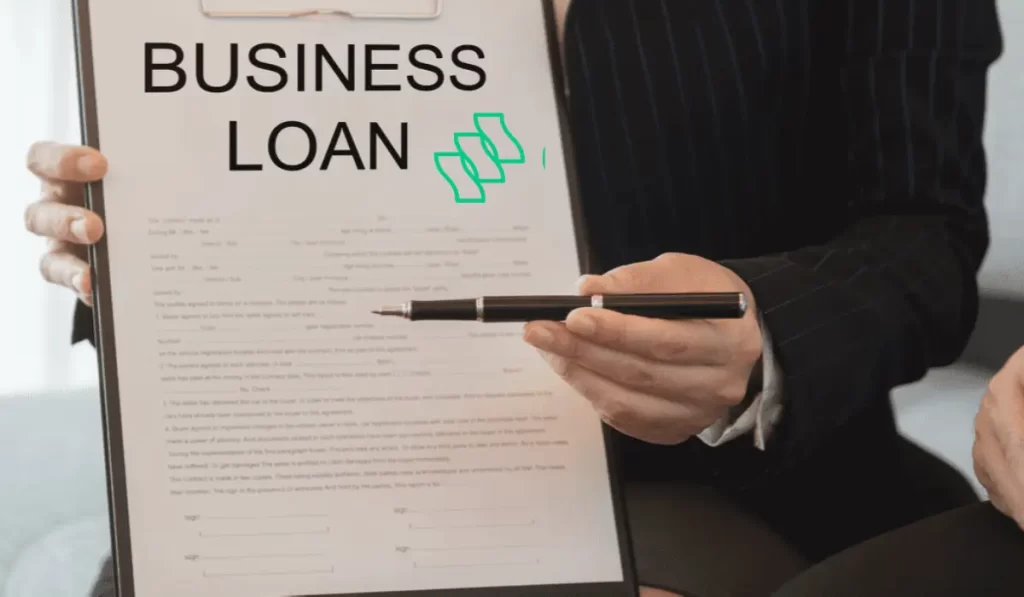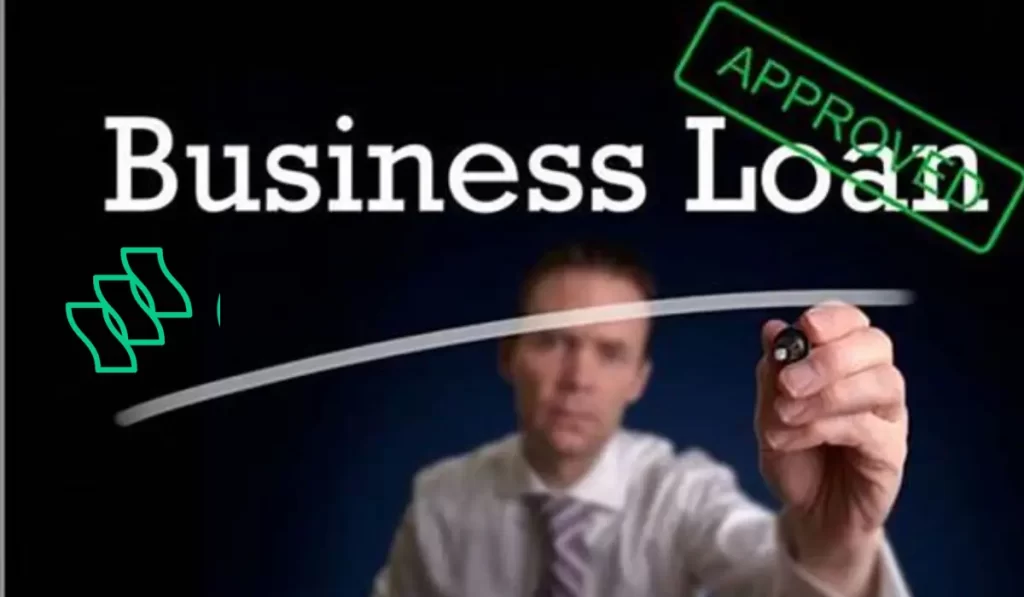Securing start up business loans with bad credit can be a formidable challenge for many aspiring entrepreneurs. However, understanding the financing landscape and the various strategies available for obtaining start up business loans with bad credit is crucial. This knowledge empowers business owners to navigate the complexities of the financial world, despite their credit shortcomings.
The pathway to acquiring start up business loans with bad credit begins with a robust understanding of what exactly constitutes bad credit and how it can impact one’s ability to secure traditional financing. This article delves into these aspects, exploring alternative loan options tailored for businesses facing these challenges.
Business Loans
02


5
Average Review
Business Loans
- Provides data-driven financial solutions
- Loan amount: $15K - $1M
- Time in business: 12+ months
- $12.5K in monthly revenue
- Minimum credit score: 600
01
Understanding Bad Credit and Its Impact on Financing
What Constitutes Bad Credit?
Bad credit typically refers to a lower credit score which might result from late payments, high credit utilization ratios, or past financial mishaps like bankruptcies. In terms of securing start up business loans with bad credit, this score is a critical factor that lenders consider, typically reflecting a score below 580 on the FICO scale.
Impact on Securing Traditional Business Loans
The pursuit of start up business loans with bad credit is often met with resistance from traditional banks. These institutions typically view bad credit as a sign of high risk, which might lead to loan application rejections. This creates a significant barrier for startups that are already grappling with the challenges of establishing a new business.
Related: Personal Loans with Bad Credit | Best For Poor Credit Score
Types of Start-Up Business Loans for Bad Credit
For those seeking start up business loans with bad credit, there are specialized types of loans designed to accommodate the unique needs of these entrepreneurs. These loans take into account factors beyond credit scores, potentially paving the way for funding opportunities.
Microloans
Microloans are essential for obtaining start up business loans with bad credit. They cater specifically to startups and small businesses that might not qualify for larger, more traditional loans due to their credit histories.
How Microloans Work
Microloans provide smaller sums of money – typically from $500 to $50,000 – which makes them ideal for small scale needs of startups. For start up business loans with bad credit, these loans come with relatively lenient terms, often because they are backed by non-profit organizations that aim to foster small business growth.
Typical Terms
The terms associated with microloans are particularly appealing for those looking for start up business loans with bad credit. These loans often feature lower interest rates and flexible repayment terms, making them accessible for businesses with limited financial resources.
Best Providers
Organizations like the U.S. Small Business Administration (SBA) are prominent providers of microloans and are instrumental for those needing start up business loans with bad credit. Other providers include non-profit lenders like Kiva and Accion that specialize in micro-financing for underserved entrepreneurs.
Equipment Financing
Another viable option for securing start up business loans with bad credit is equipment financing. This type of loan is ideal for startups that need to purchase business-critical machinery or equipment but have bad credit.

Related: High Risk Business Loans: Secure Funding Options
Benefits of Equipment Financing
Equipment financing for start up business loans with bad credit offers substantial benefits, primarily because the loan is secured by the equipment itself. This security allows for more favorable terms, as the risk to the lender is mitigated by the collateral.
Specifics of Securing Loans Against Equipment
In the context of start up business loans with bad credit, equipment financing agreements typically cover up to 100% of the equipment cost, allowing businesses to preserve their capital for other uses. The repayment terms usually align with the lifespan of the equipment, making this a practical choice for startups looking to manage cash flow effectively.
Related:
Business Credit Cards
Advantages of Using Business Credit Cards for Startup Funding
Business credit cards offer a viable solution for securing start up business loans with bad credit. These cards not only facilitate easier access to credit but also provide a flexible method to manage cash flow and expenses. Business credit cards can serve as a critical financial tool by offering rewards, such as cash back on purchases, which can be reinvested into the business. Additionally, some cards come with introductory offers like 0% interest rates for the first few months, allowing startups to purchase necessary supplies without accruing immediate interest.
Accounts Receivable Financing
Process and Benefits of Invoice Financing
Accounts receivable financing, or invoice financing, is another strategic option for businesses looking to manage their working capital requirements effectively. This financing method allows businesses to receive early payment on their outstanding invoices, which can be particularly beneficial for startups needing to free up cash tied in unpaid invoices. For companies considering start up business loans with bad credit, invoice financing offers a quick infusion of cash based on sales rather than credit score, thereby not affecting the business’s credit rating.
Related: Credit Cards Trends And Predictions by Market Expert
Merchant Cash Advances
Using Merchant Cash Advances for Businesses with Strong Sales but Bad Credit
Merchant cash advances (MCAs) present a significant opportunity for businesses with consistent sales volumes but poor credit histories. This type of financing provides a lump sum in exchange for a percentage of future sales, typically through credit card transactions. For those looking for start up business loans with bad credit, MCAs offer a fast and flexible funding solution, albeit often at higher costs compared to traditional loans.
Preparing to Apply for Bad Credit Business Loans
Credit Score Requirements
Navigating start up business loans with bad credit involves understanding the typical credit score requirements. Most alternative lenders may have more lenient credit score criteria, focusing instead on the business’s operational history and cash flow. To mitigate bad credit, businesses can demonstrate a detailed plan for future profitability, or show improvements in credit management over time.
Business Plans and Cash Flow Projections
The importance of having a strong business plan and realistic cash flow projections cannot be overstated, especially when applying for start up business loans with bad credit. These documents demonstrate to lenders that the business has a clear strategy and a solid understanding of its financial management. Well-documented projections can reassure lenders of the business’s capacity to repay, thus enhancing the chances of loan approval.
Providing Collateral
Offering collateral can improve the prospects of securing start up business loans with bad credit. Assets such as real estate, equipment, or inventory can be leveraged to secure loans, reducing the perceived risk for lenders and potentially leading to better loan terms.
Finding Cosigners
A cosigner can play a pivotal role in securing start up business loans with bad credit. By agreeing to share the loan’s responsibility, cosigners provide lenders with an added layer of security, which might help in obtaining approval. The responsibilities and implications of having a cosigner should be clearly understood by both parties involved.

Step-by-Step Guide to Applying for a Loan
Applying for start up business loans with bad credit involves several steps, from researching potential lenders to preparing and submitting loan applications. The process begins with identifying lenders that offer financing to businesses with bad credit, followed by gathering necessary financial documents, and completing a detailed loan application.
Comparing Loan Offers
When evaluating start up business loans with bad credit, it’s crucial to compare the different loan offers. This comparison should extend beyond just looking at interest rates to include analyzing terms, fees, and repayment schedules. Understanding these components will help in selecting the most beneficial loan offer for the business.
Best Practices When Applying for Bad Credit Business Loans
To enhance the likelihood of approval for start up business loans with bad credit, it’s advisable to work on improving the business credit score, negotiate terms with lenders, and steer clear of borrowing pitfalls. Maintaining a positive financial trajectory can also significantly improve future credit opportunities.
Success Stories
Many businesses have successfully navigated the challenges of bad credit to secure necessary funding. These success stories can serve as motivational benchmarks for other entrepreneurs in similar situations, demonstrating that obtaining start up business loans with bad credit is indeed possible with the right approach and resources.
Regulatory Considerations and Legal Advice
Understanding the regulatory landscape and legal considerations is essential when applying for and using start up business loans with bad credit. Entrepreneurs should seek advice to ensure compliance with financial regulations, which can vary significantly from one jurisdiction to another.
Securing start up business loans with bad credit demands a proactive approach and thorough preparation. By leveraging the available resources and remaining informed about the various lending options, entrepreneurs with bad credit can navigate their way towards successful business financing.
Business Loans
02


5
Average Review
Business Loans
- Provides data-driven financial solutions
- Loan amount: $15K - $1M
- Time in business: 12+ months
- $12.5K in monthly revenue
- Minimum credit score: 600
01
Frequently Asked Questions
What exactly qualifies as bad credit when applying for startup loans? Bad credit generally refers to a FICO score of 579 or lower. However, different lenders may have varying definitions based on their own criteria.
Can I get a start up business loan with bad credit without any collateral?
Yes, there are unsecured loan options available for startups with bad credit, such as unsecured business loans, merchant cash advances, and business credit cards.
What are the typical interest rates for start up business loans with bad credit?
Interest rates can vary widely, often being higher for those with bad credit due to the increased risk to lenders. Rates can range from slightly above prime rates to much higher, depending on the type of financing and the lender.
How can I improve my chances of being approved for start up business loans with bad credit? mproving your credit score, providing collateral, adding a cosigner, and demonstrating strong business potential through detailed financial plans can all improve your chances.
Are there specific lenders that specialize in start up business loans with bad credit?
Yes, there are lenders that specialize in lending to individuals with bad credit, including online lenders, microfinance institutions, and certain nonprofit organizations.
How long does it take to get approved for start up business loans with bad credit?
The time can vary from one lender to another. Some online lenders can process your loan application and disburse funds within a few days, while traditional banks might take weeks or even months.
What documents are typically required to apply for start up business loans with bad credit?
Lenders usually require proof of identity, business plans, financial statements, bank statements, and sometimes collateral documentation.
Can start up business loans with bad credit be used for any type of business expense? Most loans can be used for a wide range of business purposes, but some loans, like equipment financing, must be used specifically to purchase the equipment that serves as collateral.
What happens if I default on a start up business loan with bad credit? Defaulting on a loan can lead to serious financial consequences, including damage to your credit score, legal action from the lender, and loss of collateral.
Are there any government grants available for startups with bad credit?
While grants are generally not dependent on credit, they are highly competitive and typically targeted toward specific industries or purposes rather than broadly available for all startups with bad credit.


 Read More
Read More 





One Response